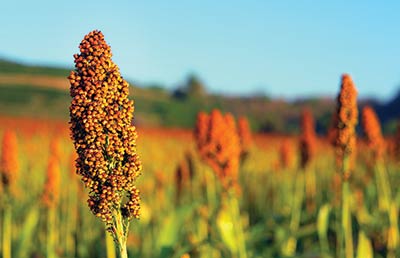What Are Capital Gains

Section 199A is the new 20% qualified business income deduction, however, this deduction is limited to the lesser of that number of 20% of taxable income minus net capital gains.
However, what is net capital gains? The Code refers to net capital gains as defined in Section 1(h). When you review that section, capital gains includes the following items of income:
- Long-term capital gains. This includes gains from selling stocks, bonds, etc. held more than one year.
- Qualified dividend income.
- Section 1231 gains that are not taxed as ordinary income. Section 1231 gains are ordinary to the extent of unrecaptured net Section 1231 losses from the prior five years. These gains for farmers are typically sales of raised breeding stock or farm land.
- Section 1250 gains. These are gains from selling real estate that represents the amount of depreciation taken. They are taxed as a maximum 25% rate. Even though the tax rate is same until the taxpayer hits at least the 25% tax bracket, they are still part of net capital gains.
- Long-term rate for collectibles. This is a maximum 28% tax rate for the sale of collectibles.
This calculation can substantially limit the 199A deduction for farmers, especially dairy farmers. As an example, assume a dairy farmer has $500,000 of gains from selling raised breeding stock and has a $300,000 Schedule F farm loss. None of the gains count as QBI, therefore, the farmer has to carry over the $300,000 loss to 2019 and start-off that much in the hole.
In our example above, many farmers sell their milk through a cooperative which will pass out a large DPAD allocation. This DPAD is allowed to offset 100% of taxable income INCLUDING capital gains.
Here is another example. Assume a farmer has farm income of $300,000, has a long-term capital gain income of $300,000 and has an ordinary loss from the sale of a rental property that is not QBI of $300,000. Her tentative QBI deduction is $60,000, however, her net ordinary taxable income is zero (less her standard deduction), therefore, her allowed 199A deduction is zero and she has to pay tax on all of the capital gains.
Paul Neiffer is a certified public accountant and business advisor specializing in income taxation, accounting services, and succession planning for farmers and agribusiness processors. Paul is a principal with CliftonLarsonAllen in Walla Walla, Washington, as well as a regular speaker at national conferences and contributor at agweb.com. Raised on a farm in central Washington, he has been immersed in the ag industry his entire life, including the last 30 years professionally. Paul and his wife purchase an 180 acre ranch in 2016 and enjoy keeping it full of animals.

any thoughts about estimated tax payments for farmers on Jan 15th or filing of returns by March 1